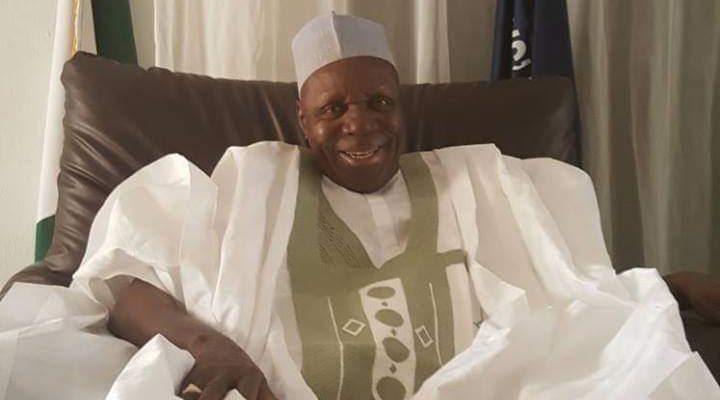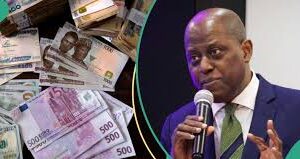The shocking news of the passing of Sen. Iliya Audu on June 17, 2024, sent me careering down the memory lane. On a Friday evening in the month of July, 1972, a call came to my uncle in Zaria where I was reporting for the influential New Nigerian Newspapers. The caller was my Zaria City Editor, Mr. Francis Talabi, one of the funniest men South of the Sahara.
The message was loud and clear: “Tell Clem to proceed to Jos (immediately); he is needed by The Nigeria Standard Newspaper”.
On the Sunday that followed, I packed some clothes and headed for Jos. The journey last for a whole day. The road, largely untarred, was bumpy and riddled with potholes. The bus I boarded transferred to its occupants the battering it received from the potholes and trenches because the shock absorbers and the suspension had all collapsed.
I arrived at the Tin City to the warm embrace of its salubrious weather… a contrast to the punishing Zaria climate. I navigated my way to a hotel located near the Kwararafa Cinema. It was past midnight when I checked into the hotel, with a revolt building up in my tummy. I had not had any meal after the light breakfast I took in Zaria. A drama unfolded immediately I took possession of the room. I sighted a strange figure of a dirty-looking man that could pass as a lunatic.
I backpedaled to the door in fright. Why should they allocate to me a room already occupied by a lunatic? I wondered aloud. What actually happened was that I had passed by a standing mirror in the poorly illuminated room. The image in the mirror was mine! The layers of dust I gathered in the course of the journey had transformed my appearance. I managed to clean up my face and beat the dust off my clothes, and stepped out to look for some victuals to quell the revolt in my tummy, instigated by the god of throat. The hotel restaurant had since closed for the night. There was no way I could have been able to sleep despite the fatigue I suffered for more than 16 hours that the trip lasted … 7 am to past 11 pm.
Fortunately for me, I found a roadside meal provider. I got fried beans cakes, plantain, yam, complete with fish, to quell the tummy rebellion. After the meal, I dragged my tired body to bed, catching about eight hours of sound, uninterrupted sleep… helped by a warm bath. Still feeling fagged out, I had another warm bath, dressed up and headed for the premises of the Government Printer situated along the Murtala Mohammed Way, Jos, that served as the operational base of the paper.
I met Mr. Simon Shango, my colleague in the New Nigerian who was instrumental to my invitation to Jos. Ahead of the establishment of the paper, the secretary of Benue-Plateau Football Association had appealed to the new management of the paper to get a strong hand for the sports desk for the simple reason that Jos (is) the nation’s Bethlehem of football.
A few months before the birth of the paper, I had single-handedly covered the NUGA Games hosted by the Ahmadu Bello University, Zaria. That coverage exposed my talent as a sports meister. Mr. Shango, who was the arrowhead for the recruitment of the editorial staff for the paper, was so impressed with my coverage of the games, hence he penciled down my name for the sports desk.
Mr. Shango led me to the office of the pioneer Editor, Mr. Iliya Audu, for introduction. The editor could not believe I was the guy they were waiting for. He was expecting a Goliath of a man, but standing before him was a David, wondering if I was not too young to man the desk. He shrugged his broad shoulders and said: “Well, let us see how it goes”.
Reacting, I said, “Sir, do not judge a book by its cover.”
We all had a good laugh. Mr. Shango then ushered me to an adjacent office and no sooner I took my seat than a bulky file was dumped on the table. In the file were raw sports stories for my attention, which I did justice to.
My first impression of Mr. Audu was a pleasant one. Calm and amiable, he had a way of getting things done despite the teething problems that came with pioneering a newspaper with no printing equipment on ground. The paper had to be packaged in Jos and the materials ferried to faraway Benin to be printed by the Nigerian Observer press.
By the close of my second day at work, I requested for a relocation allowance. It was at that point that everyone realised that I had not even written an application for the job I was wanted for. A file was opened for me, my application letter filed, an appointment letter issued and an application for the relocation allowance followed… which the editor promptly approved. He even added some extra cash from his pocket.
I departed Jos back to Zaria and by the following Sunday, I was on my way again to Jos. Making two round trips on that punishing, government-forsaken Zaria-Jos road within one week was a nasty experience. And I wished I had a magic carpet to fly me back to Zaria! However, the warm reception Mr. Audu and my colleagues gave me served as a salve to ease my body ache.
Mr. Audu was a senior information officer at the time he was deployed from the Ministry of Information to pioneer the paper. He was given a blank cheque by the Military Governor, Police Commissioner Joseph Dechi Gomwalk, to comb the length and breadth of the Nigerian media space with an order to recruit the best hands for the paper.
Assisted my Mr. Shango, who was already in the media industry, he had a successful poaching. Although there were few newspapers in circulation at the time, Mr. Audu was able to attract some of the best brains around who were ready to venture into the unknown. You just had to encounter Mr. Audu and all your worries about leaping from certainty for uncertainty would vanish. He was a thoroughbred professional and an excellent manager of men. He was a likable and exceptionally brilliant personality, with attention to detail.
The paper started as a weekly publication in July but turned daily after three years during which a complex had been built and equipped with a high velocity Goss Community printing press and all necessary auxiliary equipment. Before the paper assumed a daily status, it had announced itself as a force to be reckoned with in the country as the voice of the minorities, especially the Middle Belters.
Among the pioneer professionals, irrespective of their ethnic and religious persuasions, that made the paper a household name even as a weekly, besides Mr. Shango, were George Ohemu, Lekan Akinola, Victor Ude, Patrick Onyekachukwu, David Osunde, Joseph Angulu, Chris Anana, Usman Adam, Yahuza Makongiji, Goke Awoyode, Tanko Kangiwa, Obiora Okeke, Niyi Adekeye, Kunle Ajagunna, Isyaku Iliyasu (chief photographer), Danladi Audu (chief cartoonist) to mention those I can remember. It was a fantastic mix of high calibre professionals.
The flamboyant Arthur Hart manned the Lagos Office to drive business for the paper. Pwajok Adamu Nyam, headed the advertisement department, complemented by Mr. Shango. Both of them were raking in advertisements for the new outfit, while Alhaji A.O. Ojulari was the Company Secretary/Chief Accountant. Mr. Ezekiel Yesufu sat on the board of directors as the chairman. Mr. Charles Sharp, who midwifed the New Nigerian Newspapers, was tasked to recruit a general manager for the new media house. He got a dashing Irish young man named Ian Relf to do the job.
If Mr. Audu had any hesitations about my ability to handle the sports desk, it did not take long for me to (completely) put his doubts to flight. The sports pages of the paper became one of the main selling points. This was largely due to the new dimension I introduced to sports journalism, garnishing my reportage with CHIM, an acronym for creativity, humour, idioms and metaphors.
I remember this headline I cast for one sports story that got Mr. Audu screaming in excitement: “Day of massacre! Mighty Jets bomb Police Machines in Benue-Plateau FA Cup clash!” The match ended 5 – 0 I favour of the Bombers!
Despite the constitution of the board of directors and the appointment of a general manager, Mr. Audu remained the main driver of the paper and he gave a good account of himself; he laid a solid foundation for paper. Three years into his editorship, He was removed and sent back to the Ministry of Information. I cannot remember his offence, if there was any at all. By that time, Mr. Dan Agbese had joined the paper as the Chief Sub Editor after his Youth Service in 1975.
There was a near solidarity revolt by the editorial team following the editor’s removal. I am not insinuating that Mr. Agbese was the instigator of the revolt, even though we all looked up to him for direction, being an experienced and well-respected professional. We felt diminished to have a non-professional in person of George Baba Hoomkwap coming to lead the paper. But Mr. Audu demonstrated an unusual calmness; he appealed to us not to sink the ship that he and the rest of us (the rebels) had laboured over the years to build. Eventually, Mr. Hoomkwap did not disappoint us.
Mr. Audu was to become a Senator representing Taraba South Senatorial District in the Second Republic from 1979 to 1983. My last contact with him was in Jos when a team of former management staff of the paper, appointed by the Jang administration to revamp the paper, paid him a visit in his residence in Jos in 2007 or thereabouts. Mr. Audu was the INEC’s Resident Electoral Commissioner for Plateau state and the purpose of the visit was to tap into the rich reservoir of a man who held the key to what made the paper a howling success during his short tenure. And he was still looking his old self and sharp. He chose Jos, where his journalism career blossomed in the 70s, to breathe his last at the age of 86 after a protracted illness.
I join The Nigeria Standard family in mourning the passing of this gentleman editor. May the good Lord grant his gentle soul eternal rest and his family the fortitude to bear the painful loss, Amen.




